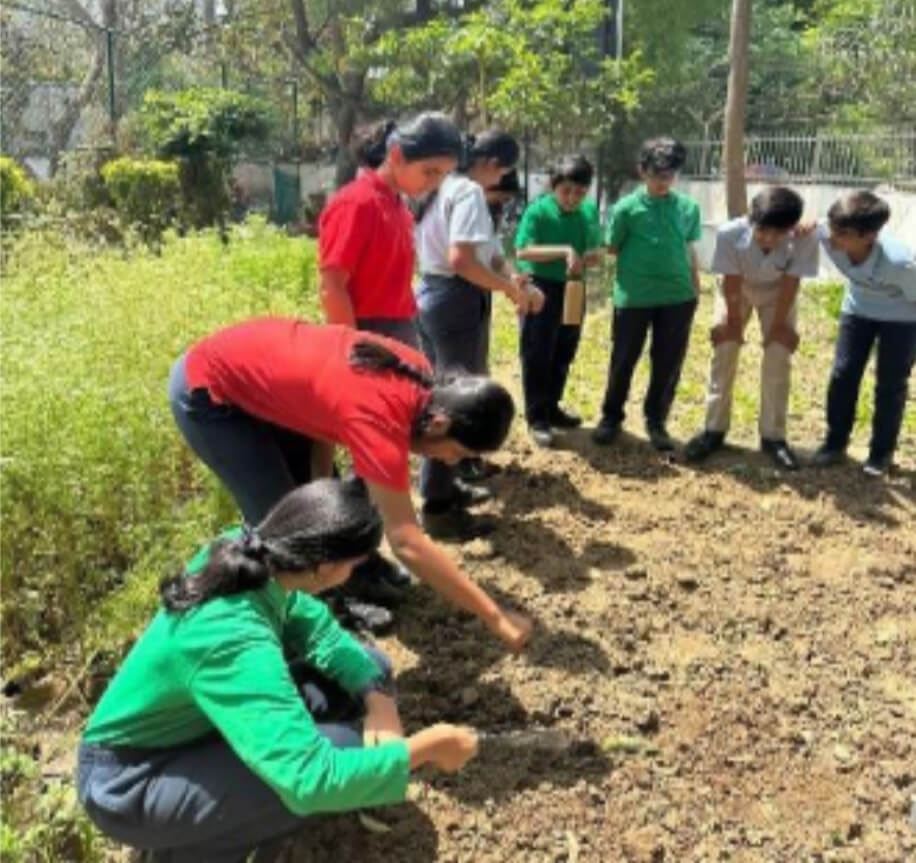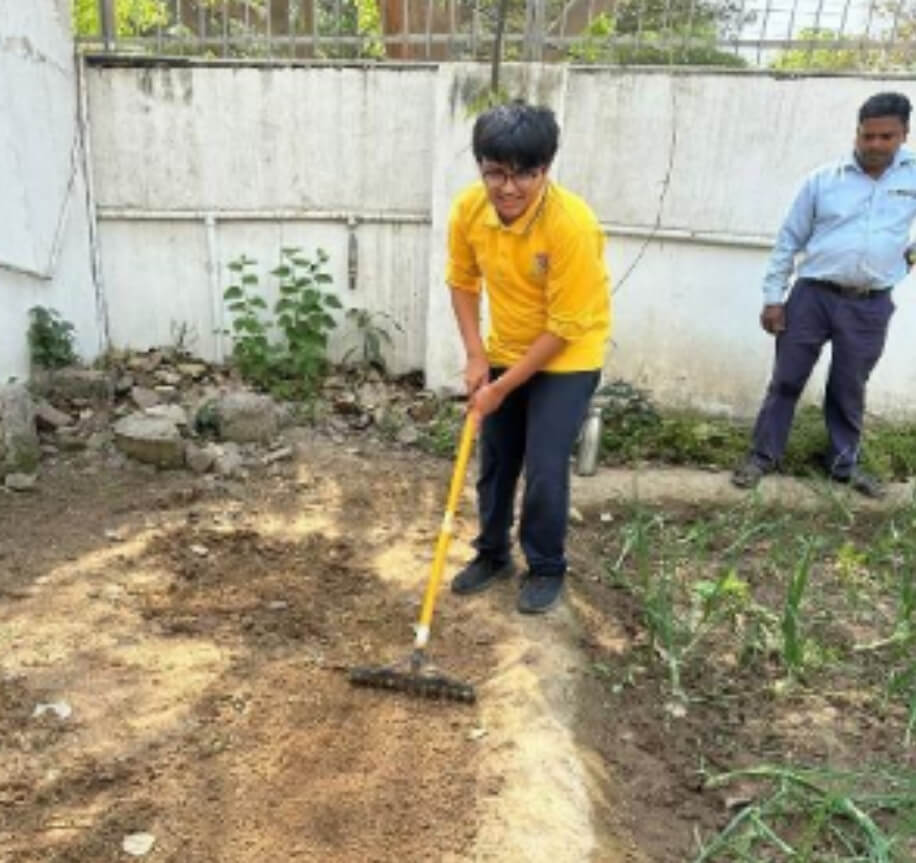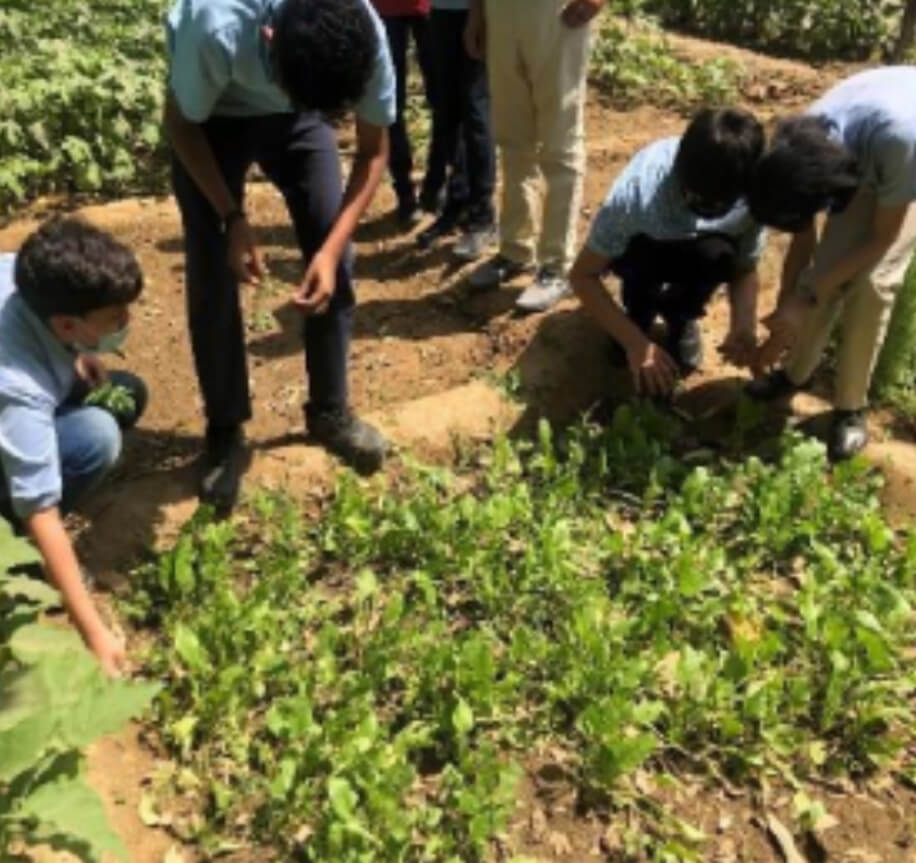By: Neelu Singh, Ridge Valley School
As an educator, passionate about sustainability, my role in integrating organic farming into our school’s curriculum has been transformative. Our journey started with the vision of creating an environment where students learn about sustainable practices, grasp the science of organic farming, and enjoy the benefits of fresh, healthy produce.
Experiential learning is at the heart of our organic farming initiative at our school. Students are actively involved in this hands-on approach which helps them grasp complex concepts such as soil health, steps of soil preparation, organic manure and natural pest control in a practical and engaging manner. Farming sessions are integrated into the science curriculum, making learning dynamic and interactive.


The impact of this program has been profound. Students have developed a deeper connection to nature and a greater appreciation for the food they eat. They have learned about the importance of sustainable practices and are more conscious of their environmental footprint. By nurturing a generation that understands the value of sustainable practices, we plant the seeds for a brighter future.
The success of our organic farming program has inspired us to expand our efforts. Plans are underway to introduce a composting system to teach students about waste management and soil fertility.

Integrating organic farming into the school curriculum has been a fulfilling endeavor, bringing together education, sustainability, and community. It has provided students with invaluable life skills and fostered a culture of environmental stewardship. As we continue to nurture this program, I am excited to see the long-term positive impact it will have on our students and the broader community. Through experiential learning, we are not only growing crops but also cultivating a generation of mindful, responsible individuals ready to make a difference in the world.